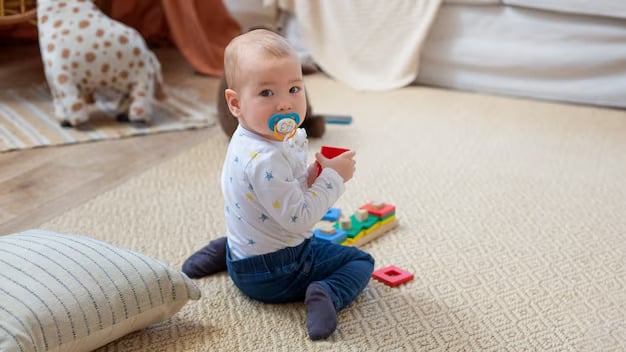🌈From Wobbly Steps to Confident Learners: Understanding Growth and Development
 🌈From Wobbly Steps to Confident Learners: Understanding Growth and Development
🌈From Wobbly Steps to Confident Learners: Understanding Growth and Development
What are the key stages of child #growth-and- #development?
Every child’s development is a remarkable journey—from coos to conversations, from stacking blocks to solving problems. These #early years are filled with rapid changes that shape how children think, move, and relate to others. Understanding #developmental-milestones helps #educators and caregivers create environments where children thrive.
In infancy, growth focuses on physical milestones—rolling over, sitting up, crawling, and taking those first wobbly steps. As children move into #toddlerhood, their curiosity blossoms. They begin exploring their independence, learning to #express emotions, and developing early problem-solving skills. Preschoolers, on the other hand, are eager communicators who thrive on imaginative #play, cooperation, and social connection.
By the time children reach #school-age, they’re building on those early foundations—refining motor skills, expanding vocabulary, and developing confidence in their learning abilities. Recognizing what’s typical at each stage allows educators to celebrate progress and identify when extra support might be needed.
Take your knowledge deeper with the 45-Hour Growth and Development: Birth to Age 12 Online Course, which gives educators a complete foundation in physical, social, emotional, and cognitive growth. This comprehensive training equips you to observe, plan, and teach with a deeper understanding of how children grow—and how you can help them reach their full potential.
How can caregivers support the “whole child”?
Development isn’t one-size-fits-all. Each child #develops at their own pace, influenced by temperament, environment, and relationships. The key to supporting the “whole child” is balance—offering structure, #freedom, and patience. Children need both predictable routines that make them feel #safe and opportunities to explore the world around them.
Caregivers can #nurture the whole child by focusing on four interconnected areas of development:
-
Physical: Encourage active play to build coordination and confidence.
-
Social: Foster cooperation and #empathy through group activities and role play.
-
Emotional: Help children recognize and express feelings in #healthy ways.
-
Cognitive: Inspire curiosity through questions, hands-on learning, and storytelling.
When educators intentionally support all these areas, children build the resilience and confidence they need to learn and grow. For thoughtful, real-world strategies, check out Grace and Courtesy in the Infant Years—a resource that introduces simple, practical ways to guide children in developing respect, patience, and self-control, even in their earliest years.
Why should educators continue studying child development?
The field of #early-childhood-education is ever-evolving. What we understand about children’s brains, emotions, and learning styles continues to expand—and so should our professional growth. Continuous learning keeps your teaching fresh, informed, and deeply rooted in best practices.
When educators study child development, they gain insight into why children behave, play, and learn the way they do. This knowledge helps you respond with empathy rather than frustration, turning challenges into opportunities for growth. It also strengthens your ability to communicate effectively with families, building trust and collaboration.
Our article How Can ECD Training Transform Your Understanding of Child Development? explores how professional development not only enhances your #classroom but also shapes your personal growth as an educator. Each course or workshop you take adds a new layer of skill and confidence to your teaching toolkit.
💡 Bonus tip: Learning that grows with you
Investing in your education doesn’t have to be costly. ChildCareEd offers flexible, affordable options for #early-childhood professionals looking to expand their expertise. Whether you’re pursuing certification or just refreshing your knowledge, explore our savings page for exclusive discounts on training and courses.
Remember, every lesson you learn as an educator helps you nurture the next generation of learners—from those first wobbly steps to confident strides toward a bright future.
- 45 Hour Preschool Methods and Materials
- CDA Bridge Bundle: Family Child Care without Portfolio Review
- CDA Bridge Bundle: Infant/Toddler without Portfolio Review
- 45 Hour Child Growth and Development
- 45 Hour Infant and Toddler Methods and Materials
- 45 hour Growth and Development Birth-age 12 ONLINE
- CDA Bridge Bundle: Preschool without Portfolio Review
- 45-Hour Infant and Toddler Curriculum
- 45-Hour Preschool Curriculum
- Effective and Engaging Classroom and Home Daycare Room Arrangements
- Navigating the Path to a Child Development Associate (CDA) Credential in Louisiana
- Teaching with Purpose
- 🌱Watch Me Grow! How to Track and Support Child Development in Young Children
- 🌈From Wobbly Steps to Confident Learners: Understanding Growth and Development
- 🧠Tiny Minds, Big Discoveries: Nurturing Early Growth and Development
- The Brain Architects: How Early Educators Shape Tomorrow’s Innovators🧠
- How can I support children’s language and literacy development?
- 🤝 What Strategies Help Teachers Create Responsive & Respectful Environments for All Children? 🌻
- 🧠 What Shapes a Child’s Strength, Confidence, and Emotional Growth?
- 🌍 How Can Culture, Communication, and Collaboration Improve Child Assessment?
- Why Ongoing Professional Development Matters for Maryland Providers
- Facility walk-through audits: a director’s monthly checklist for safety + readiness